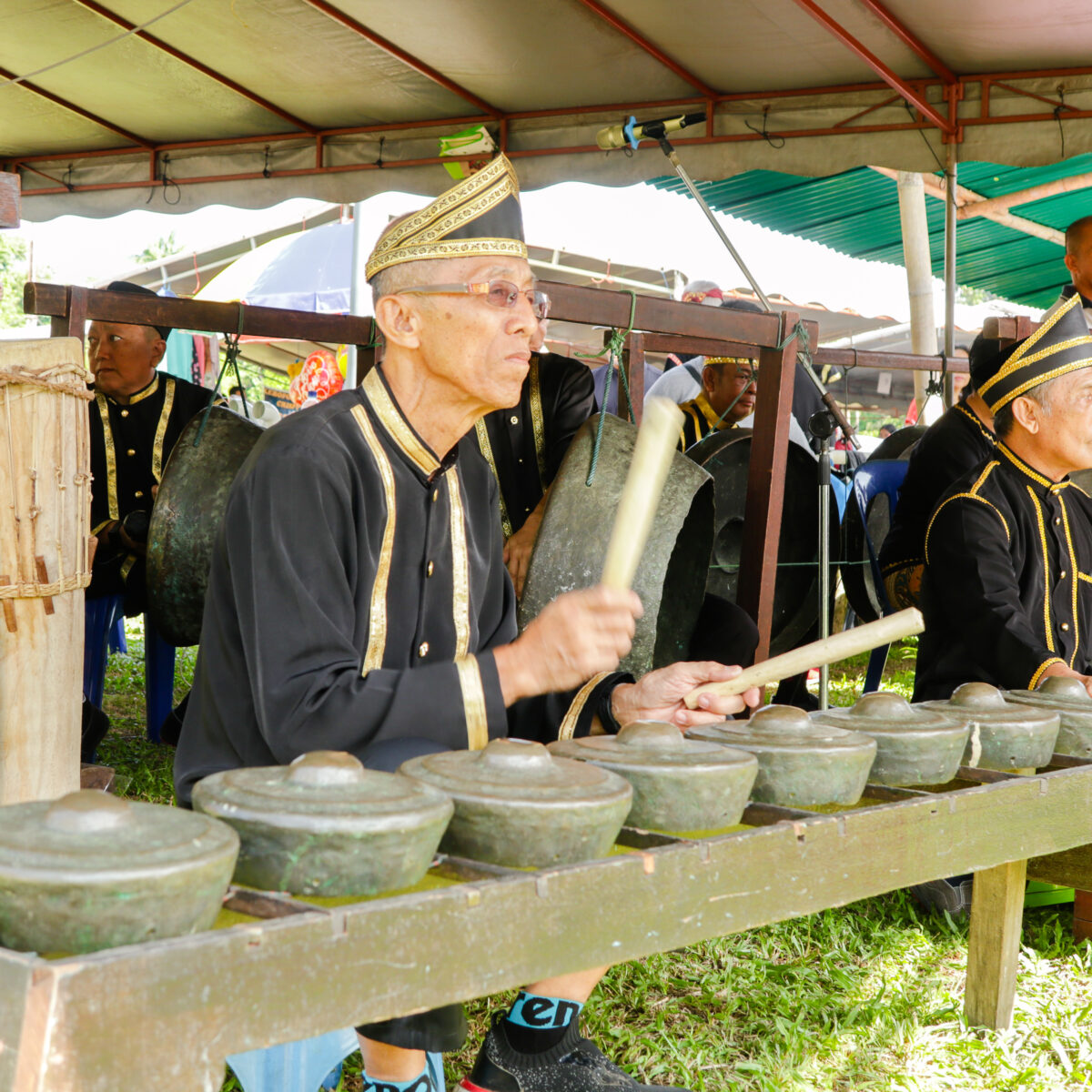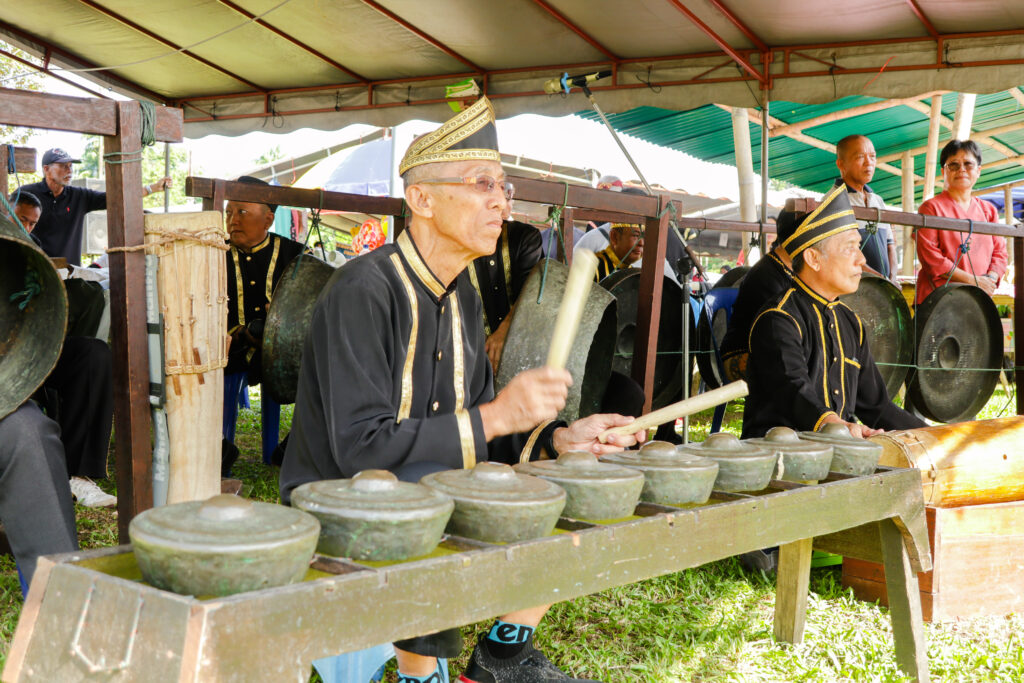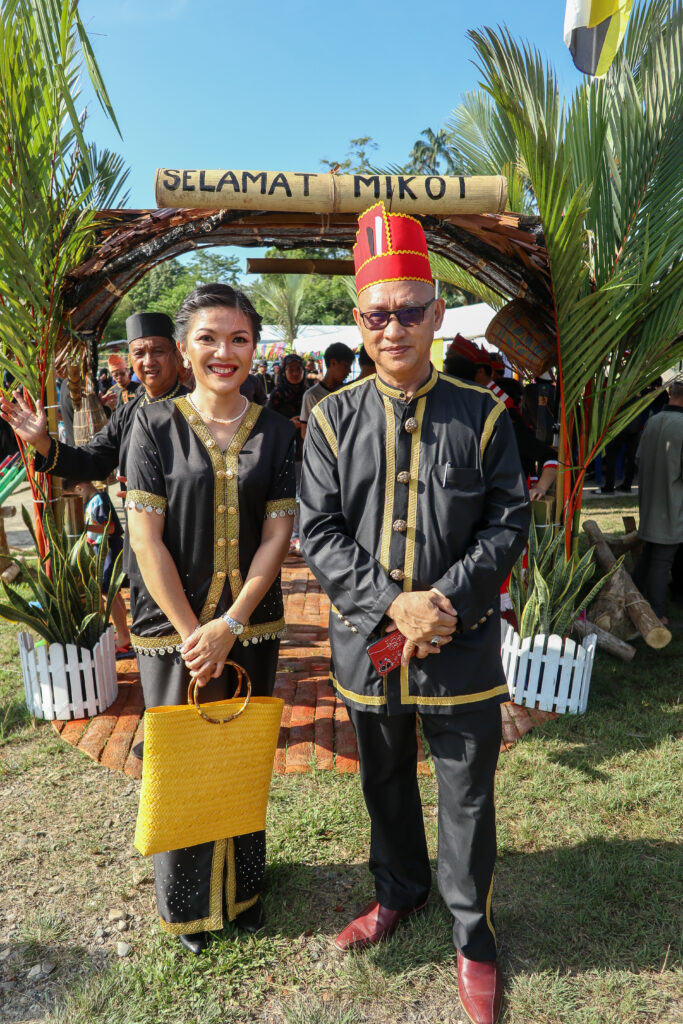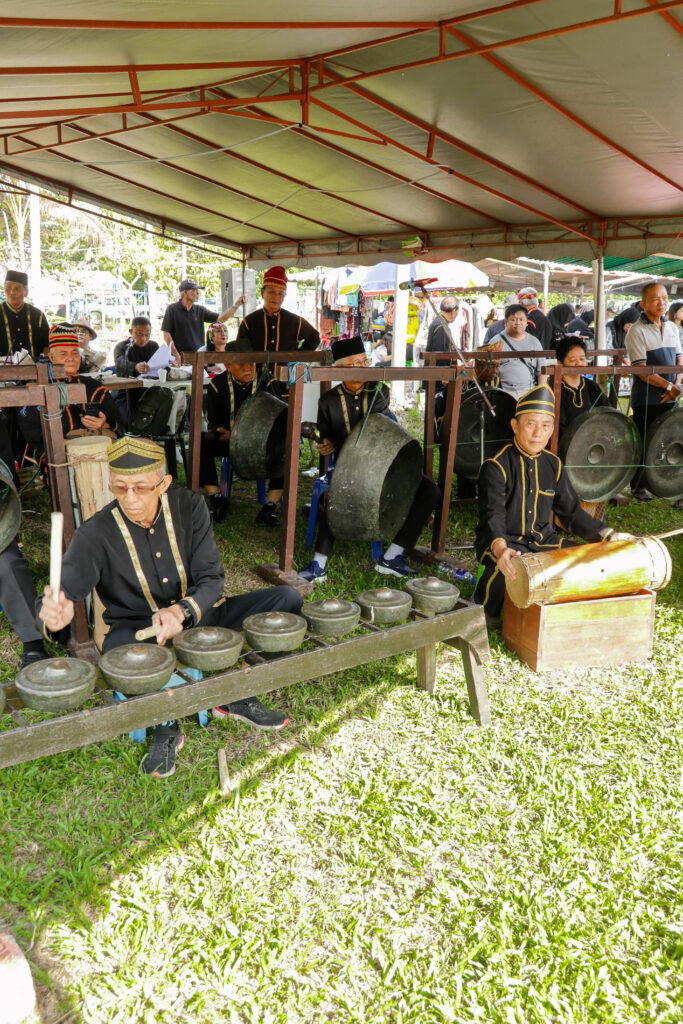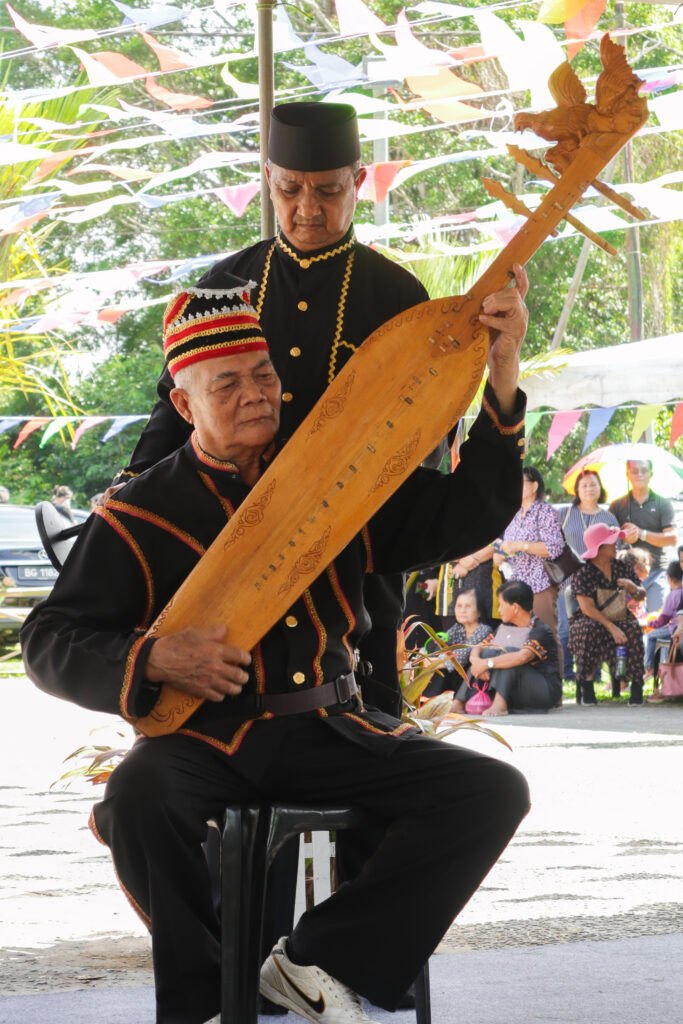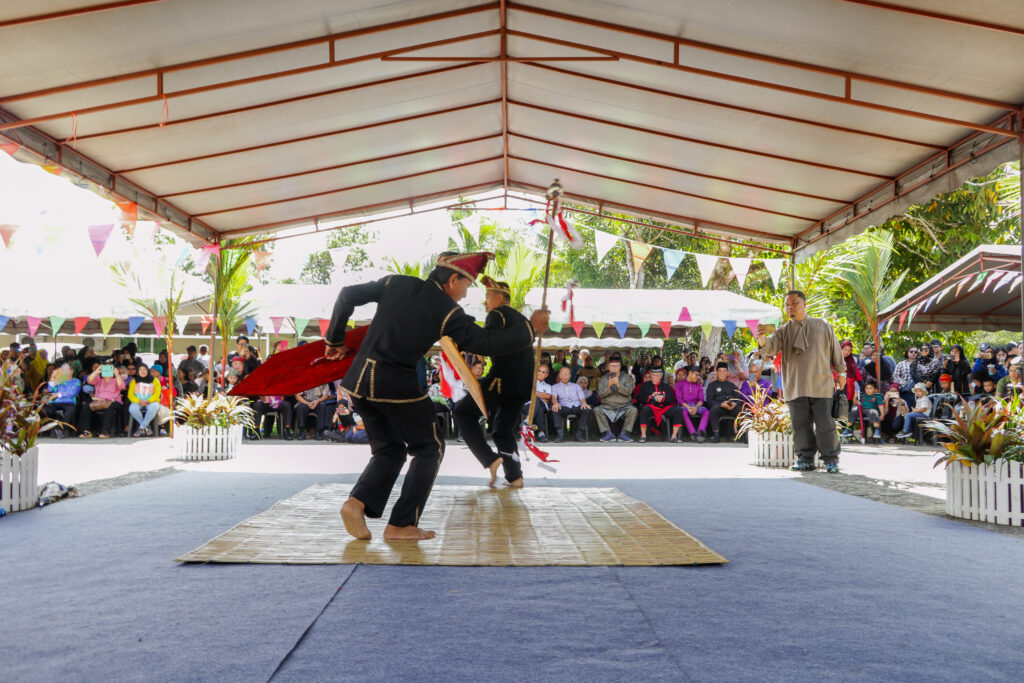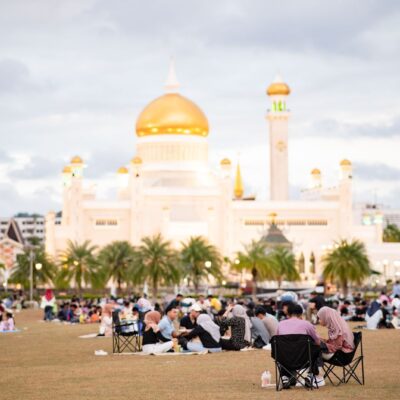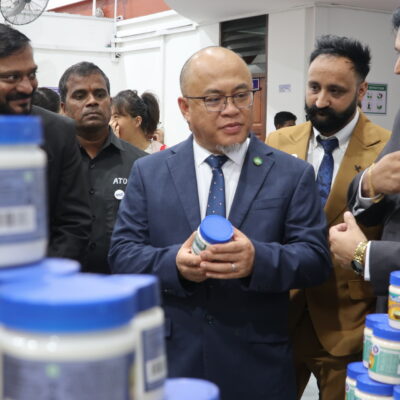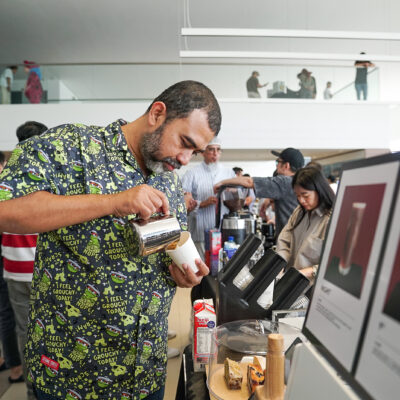by Jia Ying Chia
The sound of rhythmic drumming and gulingtangan fills through the square, a procession of dancers slowly make their way to the centre armed with bamboo poles — bare feet surely bruning against the sun-baked concrete. One of the many traditional dances of the seven puak jati or indigenous tribes of Borneo, the Bagadang Takulang dance is a cultural relic of the days when Borneo’s original peoples performed it often and in a time when it would have been done on the more comfortable surfaces of grass or wood flooring.
In this instance, it is Adau Gayoh — a festival that marks the end of the rice harvesting season and is symbolic of the Dusun community’s gratitude for good harvest and typically celebrated at the start of every May. Organised by the Dusun Community Pakatan Sang Jati (PSJD) of Bukit Udal in Tutong, the festival brought the community together for a joyful morning fill with aspects of Dusun and indigenous Bornean culture including performances from other tribes, traditional music, food and crafts for sale.
Several Dusun adat (customs) such as ‘soncong telingo’, this required ear plugs or covers of white cloth, small white plates, money and iron or folding knives to be sent to the family house of a recently deceased tribe member, if an event or celebration is occuring nearby; and a Puun replica, a tiered tray that traditionally holds various food items like penyaram, nubor lopot, kelupis and bananas.
Representatives from the PSJD say that they hope these opportunities to hold the celebrations of their culture can produce a generation that is “dynamic, progressive, active, disciplined and innovative” with regards to their indigenous heritage and traditions. “We hope that this strengthens friendship among the Dusun people,” they added, saying that the number of youths and families present during this year’s event was a positive indication of their efforts to pass on cultural knowledge to the future generation of indigenous Bruneians, who now make up just 10 percent of the country’s population.

